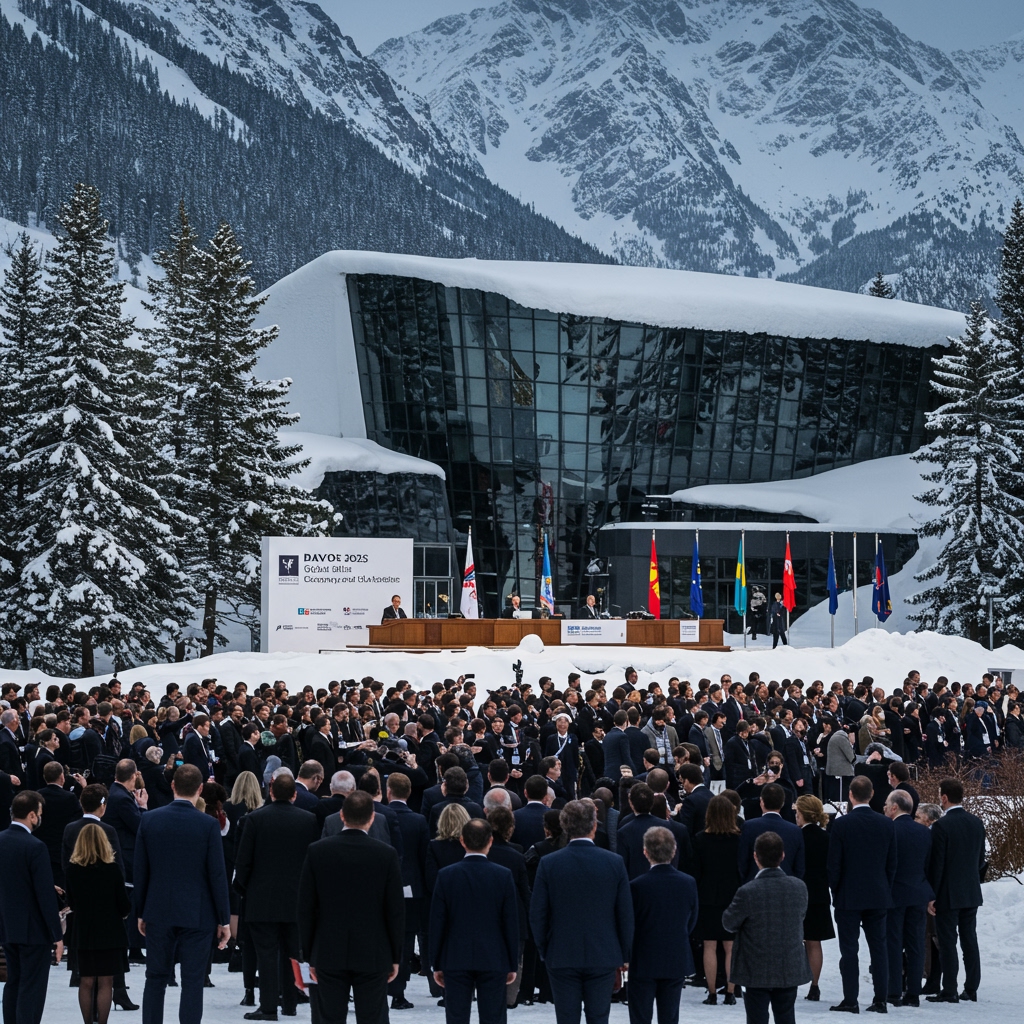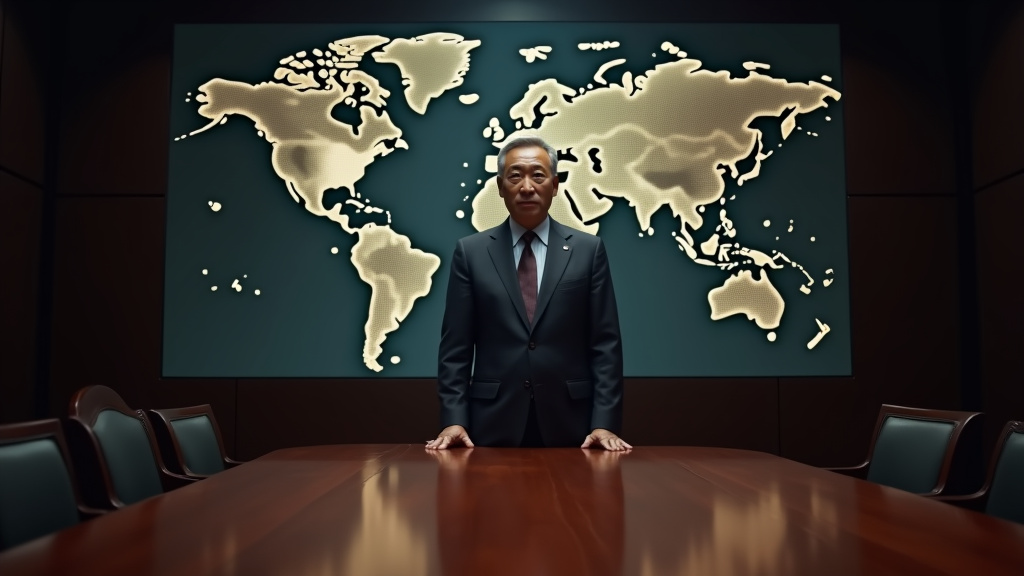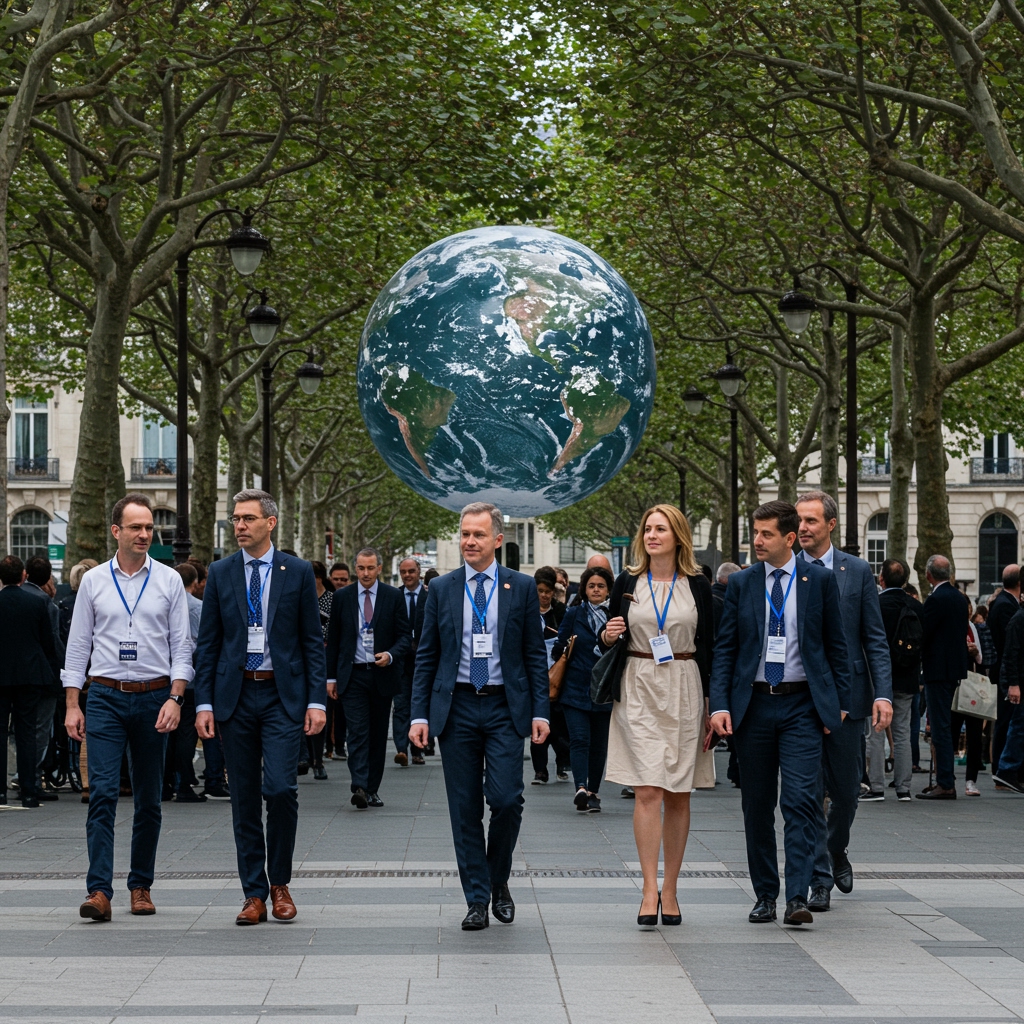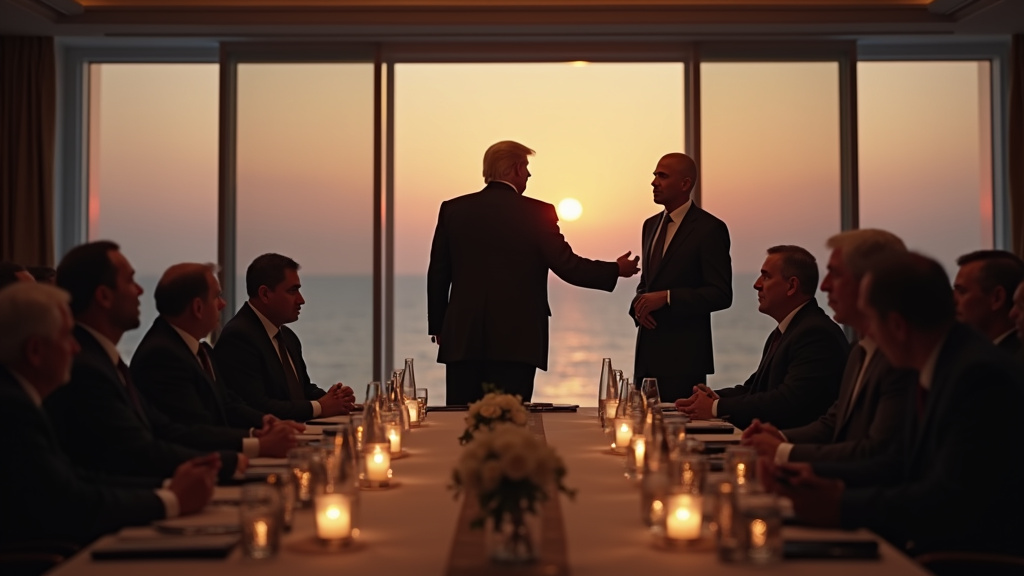Global Leaders Convene in Davos Amidst Economic Uncertainty
The picturesque town of Davos, Switzerland, is once again the focal point for global dialogue as it hosts the World Economic Forum’s (WEF) annual meeting. This highly anticipated gathering has brought together a diverse group of over 2,800 participants, including a significant contingent of heads of state, high-ranking government officials, and foremost leaders from the world’s top businesses. The forum, a crucial platform for shaping global, regional, and industry agendas, is tackling a complex confluence of challenges facing the international community today.
Navigating a Challenging Global Economy
A primary focus of the discussions underway is the pressing need to navigate a complex and increasingly fragmented global economy. Participants are grappling with significant economic headwinds that continue to impact stability and growth worldwide. Persistent inflation remains a key concern, eroding purchasing power and complicating monetary policy decisions for central banks globally. Discussions are centered on understanding its drivers and exploring strategies for achieving price stability without stifling economic activity.
Furthermore, the resilience of supply chains is under intense scrutiny. Recent global shocks, from the pandemic to geopolitical conflicts, have exposed vulnerabilities in interconnected supply networks. Leaders are exploring ways to build more robust, diversified, and secure supply chains capable of withstanding future disruptions, ensuring the consistent flow of essential goods and components across borders.
Another critical economic theme is geopolitical fragmentation. The rise in protectionism, trade barriers, and regional blocs is creating a more unpredictable landscape for international commerce and investment. Sessions are dedicated to understanding the economic implications of this fragmentation and discussing potential pathways to preserve the benefits of globalization while acknowledging legitimate national security and economic interests. The challenge lies in fostering cooperation in an era of increased competition and division.
The Promise and Peril of Emerging Technologies: AI in Focus
Beyond the immediate economic concerns, the forum is dedicating substantial attention to the transformative potential and inherent challenges of emerging technologies, particularly artificial intelligence (AI). Leaders are keen to explore how AI can be harnessed responsibly to drive innovation, boost productivity, and address societal challenges.
Discussions delve into the ethical considerations surrounding AI development and deployment, including issues of bias, transparency, and accountability. The need for global governance frameworks and international cooperation to ensure AI benefits humanity while mitigating risks is a recurring topic. The aim is to foster an environment where technological advancement aligns with societal values and promotes inclusive growth, preventing a digital divide that could exacerbate existing inequalities.
Pathways to Sustainable Growth and the Future of Work
Several key sessions are exploring specific pathways to achieve sustainable economic growth in the 21st century. This includes examining green technologies, renewable energy transition, and the circular economy as drivers of future prosperity. The link between environmental sustainability and long-term economic viability is being strongly emphasized, with calls for greater investment in climate solutions and sustainable infrastructure.
The forum is also deeply engaged with the critical question of the future of employment in a digitized world. Automation, AI, and other technological advancements are fundamentally altering the nature of work. Participants are discussing the need for reskilling and upskilling initiatives, adaptable education systems, and social safety nets to ensure that workers can thrive in the evolving labor market. The goal is to create an inclusive transition that harnesses the power of technology to create new opportunities rather than leaving large segments of the population behind.
Strengthening international cooperation is an overarching theme weaving through many of the discussions. Given the interconnected nature of global challenges – from climate change and pandemics to economic stability and technological governance – the need for coordinated multilateral action is paramount. Leaders are exploring ways to revitalize international institutions and foster greater collaboration across national borders to address shared problems effectively.
Prominent Voices Call for Collective Action in 2025
Among the influential figures participating in the Davos meeting are UN Secretary-General António Guterres and ECB President Christine Lagarde. Their contributions underscore the gravity of the issues at hand and the urgency of finding collective solutions.
Both leaders, along with many others, are emphasizing the critical and urgent need for collective action, particularly concerning climate change and economic stability. The discussions often highlight the year 2025 as a crucial period for making tangible progress on these fronts, setting the stage for future policy implementations and international agreements. The message is clear: addressing these complex, intertwined challenges requires unprecedented collaboration and a shared commitment from governments, businesses, and civil society alike.
The annual meeting in Davos serves as a vital platform for these critical dialogues, aiming to translate discussion into concrete actions and partnerships that can shape a more stable, prosperous, and sustainable future for the global community. The outcomes of the sessions and the commitments made here are expected to influence policy decisions and strategic directions in the coming months and years.





